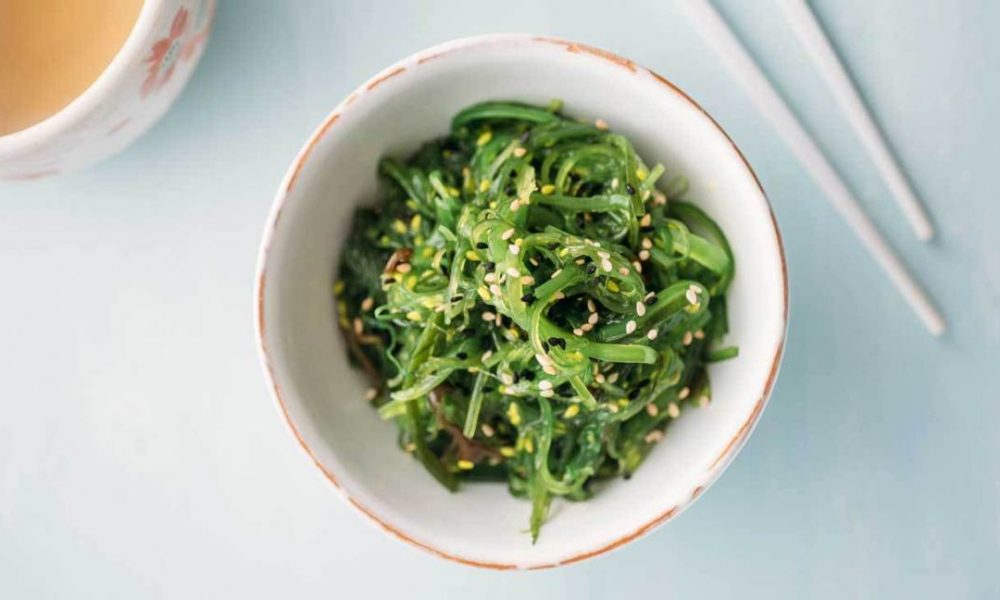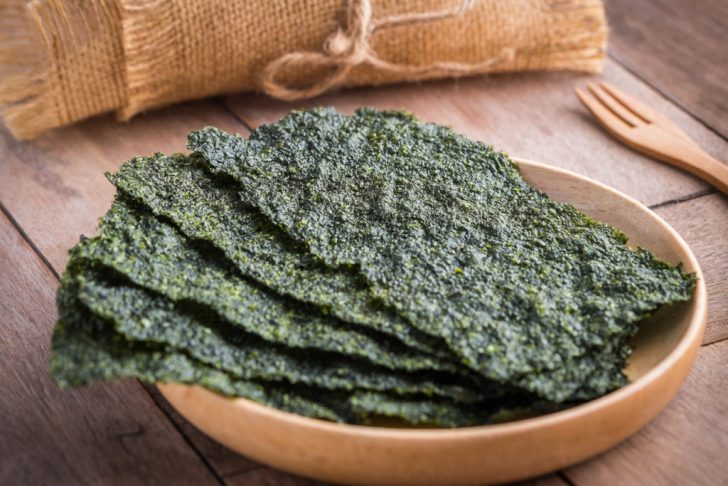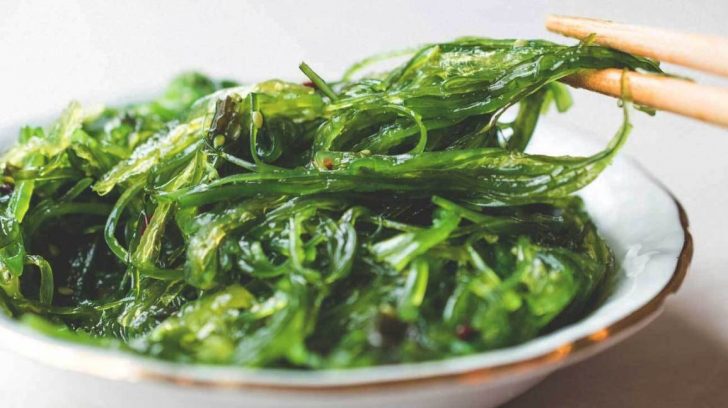
Nutrition Guide 101: Why Eating Seaweeds Might Just Be The Best Decision You’ll Ever Make

Seaweeds are one of the most flavorful, nutritious, and sustainable foods that are not only great for your health but are also a wonderful treat for your taste buds. Prominent in Japanese cuisine for ages, it is now taking American restaurants and packaged foods by storms. Find out more about seaweeds and their amazing benefits below!
Notes On Nutritional Value

Dried seaweed on a wooden plate
Seaweed is packed with minerals and full of vitamins A, B, and E. It is also full of nutrients, including magnesium, copper, potassium, and iodine. Just like fish oil, it has Omega-3s and other nutrients that provide protein and fiber as well. Finally, seaweed is one of the richest sources of antioxidants. Because of all this, a lot of people consider seaweeds as vegetables of the sea.
Most Common Seaweeds
There are many kinds of edible seaweed enjoyed all over the world. Here are some of the most common ones:
Nori: A kind of an entrance seaweed, which can often be seen in sushi rolls and in other forms as sheets.
Kelp: A big part of East Asian cuisine, which acts as a dominant ingredient in dashi that is prepared to make a Japanse soup. The powder of this seaweed can be added to kelp noodles and smoothies.
Wakame: Present in most salads, which mainly comprise of seaweed. Miso soup is also made from Wakame.
Dulse: The best seaweed out there, as it is sold dried often flaked or in a powdered form. Some people have the idea that it has the taste of bacon.
Chlorella: A green, edible freshwater algae usually marketed as a powdered supplement.
Agar and Carrageenan: These two jelly-like substances acquired from algae are utilized as plant-based binders and thickening agents in different kinds of commercially marketed food products.
More of Its Benefits

Eating seaweed regularly has a lot of great benefits, and one of them is to help folks get rid of excess weight by providing a gratifying alternative to other calorie-rich snack selections. Since it’s rich in fiber, it also great for gut health. However, very high consumption of seaweeds may increase the risk of thyroid cancer, so be wary of that.
Compounds in seaweed can protect from skin damage caused by UVB rays from the sun, preventing wrinkles, sunspots, and premature skin aging as well. On top of that, it’s antioxidant and anti-inflammatory effects can reduce the risk of having rheumatoid arthritis and osteoporosis.
How to buy seaweed and from where?
The only kind of seaweed that is easily accessible in the market is Nori sheets. One can always look for online shopping websites, at Asian marts, or at stores that sell original items. Almost every easily accessible seaweed is sold in dried form and can be consumed by adding it to warm water first. Kelp is the only seaweed that is sold in frozen form, which means that it doesn’t have to be added in warm water.
More in Well-Being
-
`
Jennifer Aniston’s Timeless Tips for Health and Youthfulness
Iconic Hollywood actress Jennifer Aniston has long been admired for her acting prowess and seemingly ageless beauty and vitality. Now in...
November 22, 2023 -
`
Unleash Your Entrepreneurial Drive: 5 Strategies for Self-Motivation
5. Have an Undying Passion Passion is the driving force behind the world’s most successful entrepreneurs. Self-motivation becomes second nature when...
November 19, 2023 -
`
How to Go Vegan – The Right Way!
The vegan lifestyle has seen a significant surge in popularity lately, and rightly so. Embracing veganism not only fosters personal health...
November 12, 2023 -
`
7 Eye-Opening Reasons to Drink More Water
Water is frequently hailed as the quintessential elixir for life, and rightfully so. Constituting approximately 60% of our total body weight,...
November 1, 2023 -
`
Drake’s Workout Regimen: How the Canadian Rapper Stays Fit
The lights dim, the stage is set, and the crowd’s anticipation is palpable. When the beat drops, there is one Canadian...
October 24, 2023 -
`
Why Six-Figure Family Holidays Are Becoming the New Normal
In the panoramic landscape of the modern travel scene, a particularly glittering trend is emerging, akin to finding a diamond the...
October 21, 2023 -
`
Foods With High Water Content
Water is the elixir of life, and staying adequately hydrated is crucial for maintaining our health and well-being. While sipping on...
October 15, 2023 -
`
The Impact of Wearable Technologies in Health Research
In recent years, wearable technologies have emerged as a powerful tool in health research, revolutionizing how we collect and analyze data...
October 3, 2023 -
`
How Celebrities Stay Fit? Secrets of Chris Pratt, Jennifer Lopez & More
The glitz and glamor of Hollywood may make it seem impossible for celebrities to maintain an enviable physique. But it is...
September 29, 2023















You must be logged in to post a comment Login